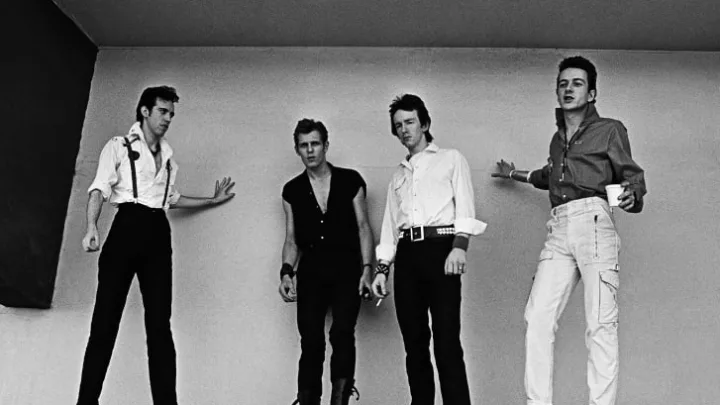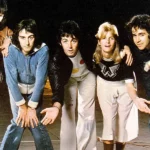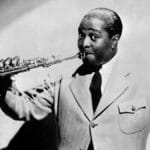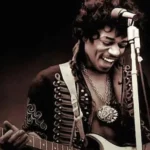Hey there, music lovers! Get ready to rock and roll with the story of The Clash, one of the most influential punk bands of all time. We’ll delve into their journey, from their early days of rebellion in the heart of London to their unforgettable anthems that sparked a global movement. Get ready to uncover the fascinating tale of The Clash!
Facts About The Clash
Emerging from the vibrant punk scene in 1976, The Clash were more than just a band—they were a cultural phenomenon. This English rock band didn’t just play music; they made a statement. What set them apart? Their unique sound, blending the raw energy of punk with the infectious rhythms of reggae and funk, captivated audiences worldwide.
But it wasn’t just their innovative music that made them icons. The Clash weren’t afraid to speak truth to power. Their lyrics were infused with political messages, tackling social issues, inequality, and everything in between. They used their platform to amplify the voices of the marginalized and fight for a better world.
From Punk Beginnings to Genre Benders
The creative force behind The Clash was the dynamic duo of Joe Strummer and Mick Jones. Their early music was pure, unadulterated punk, heavily influenced by the raw energy of the burgeoning punk movement in London. Their debut album, aptly titled “The Clash,” released in 1977, shot them to fame, establishing their rebellious spirit and cementing their place in music history.
But The Clash weren’t content to be pigeonholed. As their musical prowess grew, so did their desire to experiment. They began incorporating reggae, funk, and ska influences, creating a sound that was both familiar and groundbreaking.
The release of their third album, “London Calling” in 1979, was a defining moment. This masterpiece transcended genre, effortlessly blending their punk roots with diverse musical elements to create a sonic experience that resonated across generations. It was a testament to their evolution as musicians and their refusal to be confined to a single genre.
More Than Music: Raising Their Voices for Change
For The Clash, music wasn’t just about entertainment—it was a powerful tool for social change. They used their platform to shed light on issues such as unemployment, racism, and police brutality, giving voice to the frustrations of a generation that felt unheard. Songs like “Know Your Rights” and “Clampdown” became anthems for the disenfranchised, their powerful lyrics resonating with those who felt ignored by the system.
But The Clash didn’t just sing about change; they actively fought for it. They were involved in anti-racist movements and actively opposed fascism, putting their beliefs into action. Their commitment to social justice was unwavering, proving that music could be a force for good.
The Clash’s Echo: A Lasting Legacy
Despite facing internal conflicts and lineup changes, The Clash’s impact on music remains undeniable. They are widely regarded as one of the most influential and innovative bands of all time, inspiring countless artists across genres. Their albums consistently rank among the greatest ever made, a testament to their enduring legacy.
What’s the secret to their lasting impact? It’s a combination of their ability to seamlessly blend musical styles, their unwavering commitment to social justice, and their legendary live performances that left audiences electrified. The Clash were more than just a band; they were a cultural force. Their music continues to resonate with people today, inspiring generations to fight for a better world.
How Did The Clash Get Their Name?
In the heart of London’s punk explosion in 1976, a name was born—a name that would become synonymous with rebellion and social change. Bassist Paul Simonon, the man behind the band’s driving bass lines, was struck by the prevalence of the word “clash” in the media. Newspapers were filled with stories of social, political, and cultural clashes, reflecting the turbulent times.
The word resonated with the band. It perfectly captured the raw, confrontational energy of their music and their developing identity. They weren’t interested in singing about love or heartbreak; they wanted their music to make a statement, to challenge the status quo. And so, The Clash was born.
The name wasn’t just a name; it was a declaration of intent. It symbolized their willingness to be loud, to be angry, to confront injustice head-on. Their music became a platform for their beliefs, tackling issues like racism, poverty, and police brutality with unflinching honesty.
The very word “clash” implied a refusal to back down, a commitment to fighting for what they believed in. And that’s exactly the kind of energy they brought to their music and their message. They weren’t just playing music; they were starting a dialogue, sparking debate, and using their growing platform to challenge societal norms.
The Clash weren’t just musicians; they were a cultural force. Their name became synonymous with rebellion, activism, and the power of music to ignite change.
What Inspired the Clash?
To understand what fueled The Clash’s fire, you have to imagine the world they lived in—a world rife with injustice, poverty, and a system that seemed rigged against the working class. This was the reality of late 1970s London, and it left a deep impression on the young musicians.
While many bands channeled their frustrations into three-chord punk anthems, The Clash dug deeper. They had the raw energy, but they weren’t afraid to experiment. They were drawn to reggae, captivated by its message of social justice and infectious rhythms. They incorporated elements of hip-hop, rockabilly, ska, and even funk, proving that their musical influences extended far beyond the confines of punk.
Their name, “The Clash,” was inspired by the sensational headlines of the time—headlines that screamed of strikes, social unrest, and political turmoil. It was as if their name was ripped straight from the pages of newspapers, reflecting the turbulent world they sought to change.
And change they did. The Clash’s music was a call to action. They sang about unemployment, police brutality, racial inequality—issues that continue to resonate today. They challenged their fans to think critically, to question authority, and to fight for a more just and equitable world.
The Clash were more than just another punk band; they were a voice for the voiceless, a beacon of hope for the marginalized. Their music serves as a reminder that we all have a voice and that we can use it to challenge injustice wherever we see it.
How Important Were The Clash?
The Clash’s impact on music and culture was nothing short of seismic. They weren’t content with just playing loud music; they wanted to make a difference. Their refusal to be confined to a single genre, their politically charged lyrics, and their unwavering activism set them apart as one of the most important bands of their generation.
Their music was a potent blend of punk, reggae, and ska, creating a sound that was both fresh and exciting. They tackled social and political issues head-on, singing about poverty, unemployment, and racism—topics many bands wouldn’t touch. This resonated deeply with listeners who felt ignored and unheard, making The Clash heroes to a generation yearning for change.
And they didn’t just talk the talk; they walked the walk. The Clash actively supported anti-racist movements and fought against fascism. They encouraged their fans to get involved, to use their voices to fight for what they believed in. They were more than just musicians; they were activists, educators, and agitators, using their platform to inspire change.
The Clash’s influence extended far beyond their dedicated fan base. They ignited a fire in countless musicians who realized that music could be more than just entertainment—it could be a weapon for social change. Even today, bands across genres cite The Clash as a major inspiration, proving that their music and message continue to resonate decades later.
It’s impossible to say for sure what the music world would look like without The Clash, but one thing is certain—they left an indelible mark. They showed the world that music can be a powerful force for good, a way to challenge the status quo, and a way to give a voice to the voiceless. That’s a legacy that few can match.
How Long Did The Clash Last?
From their explosive debut in 1976 to their final bow in 1985, The Clash’s journey spanned almost a decade—a decade filled with groundbreaking music, unwavering activism, and an unyielding commitment to pushing boundaries.
In those ten years, they released six studio albums, including the iconic “London Calling,” widely regarded as one of the greatest albums of all time. They played countless live shows, electrifying audiences with their raw energy and powerful message. They became one of the most important and influential bands in music history, leaving behind a legacy that continues to inspire to this day.
Their journey wasn’t always easy. Like any band, they faced internal struggles and lineup changes. But through it all, their passion for music and their commitment to social justice never wavered. They poured their hearts and souls into everything they did, from their early punk anthems to their more experimental later work.
Beyond their musical contributions, The Clash’s impact on activism is undeniable. They used their platform to speak out against injustice, supporting anti-racist and anti-fascist movements. Their concerts became rallies for social change, inspiring a generation hungry for a better world.
Although their time together was relatively short, The Clash’s impact on music, culture, and activism is immeasurable. They proved that punk rock could be more than just loud music and angry lyrics—it could be a force for change, a way to challenge the status quo, and a way to fight for a better world. And that’s a legacy that will endure for generations to come.
Who Found the Clash?
Before The Clash became the legendary band we know and love today, two individuals ignited the spark—Keith Levene and Mick Jones. It was 1976, the height of London’s punk explosion, when they decided to form a band.
But their journey to becoming The Clash wasn’t a straight line. They initially went by the name “Weak Heartdrops,” which lacked the punch and immediacy of their eventual moniker. They even experimented with “Psychotic Negatives” for a brief period, a name that, while intriguing, wouldn’t have translated as well in the heat of a live show.
Thankfully, they eventually landed on “The Clash,” a name that perfectly encapsulated their raw energy, their rebellious spirit, and the turbulent times they were living in.
It wasn’t long before Paul Simonon joined the fold, laying down the bass lines that would become a signature element of their sound. And then came Joe Strummer, the charismatic frontman whose vocals and guitar added another layer of depth and intensity. With Strummer on board, the classic Clash lineup was complete.
What set The Clash apart from the countless other bands emerging from the punk scene? Their willingness to experiment, to push boundaries, and to challenge musical norms. They never allowed themselves to be confined by genre, seamlessly blending elements of reggae, funk, and rockabilly into their punk foundation.
But The Clash were more than just their music. Their lyrics were infused with a raw honesty and a deep social consciousness, forcing listeners to confront the realities of poverty, inequality, and injustice. They were activists at heart, using their music as a weapon to fight for change.
Here’s a recap of The Clash’s origins:
- Formed by Keith Levene and Mick Jones in 1976.
- Went through several name changes before settling on “The Clash.”
- Their sound was a unique blend of punk, reggae, funk, and rockabilly.
- Used their music to challenge injustice and advocate for social change.
Why Did They Move the Clash?
In a surprising turn of events, NASCAR made the unprecedented decision to move the Clash at the Coliseum from its Wednesday timeslot to Saturday night. This unexpected move left many fans wondering, “Why the sudden change?”
The answer, as is often the case, boils down to a combination of factors, with financial considerations and weather concerns playing significant roles.
Money Matters
Keeping the event in Los Angeles for an extended period would have been a costly endeavor for NASCAR. Extending the lease on the Coliseum, paying staff overtime, and covering additional security expenses would have put a significant dent in their budget. Moving the event likely helped them avoid a financial headache.
Dodging the Downpour
Weather forecasts predicted torrential rain and severe weather for the Los Angeles area, casting a shadow of doubt over the event’s original Wednesday schedule. The Clash’s unique location on a temporary track inside the Coliseum added another layer of complexity. A downpour would have transformed the track into a muddy mess, creating hazardous conditions for drivers and a less-than-ideal experience for fans. NASCAR likely decided it was better to be safe than sorry.
Keeping Fans Happy (and Safe)
While moving the event may have inconvenienced some fans, NASCAR had to consider the bigger picture. Holding the event as planned and then having to cancel mid-race due to a storm would have been a major disappointment for everyone involved. Rescheduling the Clash to Saturday night helped ensure a more enjoyable experience for the majority of fans.
The Verdict: Probably the Right Call
In hindsight, moving the Clash to Saturday night appears to have been a wise decision. Heavy rain did indeed hit the area shortly after the race concluded, validating NASCAR’s concerns. Had the event proceeded as originally scheduled, it likely would have been a washout. By making the difficult choice to reschedule, NASCAR ensured that fans were treated to an exciting race while also mitigating potential financial losses and safety concerns.
Explore More Musical Legends:
Delve into the unbelievable facts about Enver Pasha that will leave you astounded. Explore the fascinating facts about Nebuchadnezzar II, the enigmatic ruler of ancient Babylon. Don’t miss the intriguing facts about T-Bone Walker, the legendary blues guitarist.
- Revolution Space: Disruptive Ion Propulsion Transforming Satellites - April 24, 2025
- Race Through Space: Fun Family Game for Kids - April 24, 2025
- Unlocking the Universe: reading about stars 6th grade Guide - April 24, 2025
















